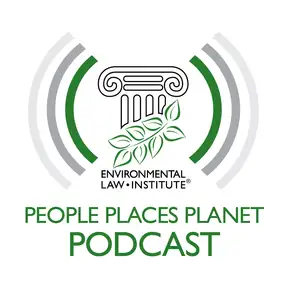Environmental Impacts of a Digital Sharing Economy
“Digital sharing services” often promise broad society benefits, including a more environmentally friendly economy. But are these sharing innovations really changing our environmental outlook for the better?
Digital technologies have steadily woven themselves into the global economy, transforming the pace at which we access and process information. “Digital sharing services” like Airbnb and Lyft often promise broad society benefits, including a reduction in energy usage, a lower environmental footprint, and more efficient use of existing products. But are these sharing innovations really changing our environmental outlook for the better?
This podcast on digital sharing services is based on comprehensive research by Tamar Makov, Tamar Meshulam, and Sarah Goldberg supported by the Network for the Digital Economy and the Environment (nDEE) with grants from the Internet Society Foundation and the Alfred P. Sloan Foundation. The nDEE is a collaboration of the Environmental Law Institute, the Yale School of the Environment, and the University of California Berkeley.
★ Support this podcast ★
Creators and Guests
Host
Georgia Ray
Georgia Ray joined ELI as a Research Associate in August 2021. She is currently working on projects related to best practices in sustainable land-based aquaculture, wetlands for hazard mitigations, wetland regulation, and digital economy and the environment. She is also the People Places Planet Podcast host. Previously, she was involved with projects related to environmental crimes in Peru and intergovernmental environmental enforcement. Before coming to ELI, Georgia worked with the Penn Program in Environmental Humanities studying the environmental justice legacy of fossil fuel in Philadelphia and was a Kleinman Center for Energy Research Leadership Fellow. She also researched the impact of public transportation on refugee integration in the Denver area, used GIS technology to understand public perception of Green Stormwater Infrastructure in Philadelphia, and authored a report for the Philadelphia City Planning Commission surrounding best practices for Urban Climate Change Mitigation. She grew up in Denver, Colorado and graduated from the University of Pennsylvania with a BA in Urban Studies, Cognitive Science, and Philosophy.
Editor
Colin Gipson-Tansil
Colin Gipson-Tansil joined ELI in January of 2014 by way of the Great Lakes State. Colin serves as ELI’s Senior Digital Media Producer where he oversees digital media needs at seminars, webinars, and events, manages social media sites, assists with support of ELI’s various websites, and produces videos as well as podcasts. Colin earned his M.A. in Producing for Film, TV and Video from American University. Prior to his Master's degree, received his B.A. in Media Arts and Technology with a concentration in Film, Radio and TV from Michigan State University.

